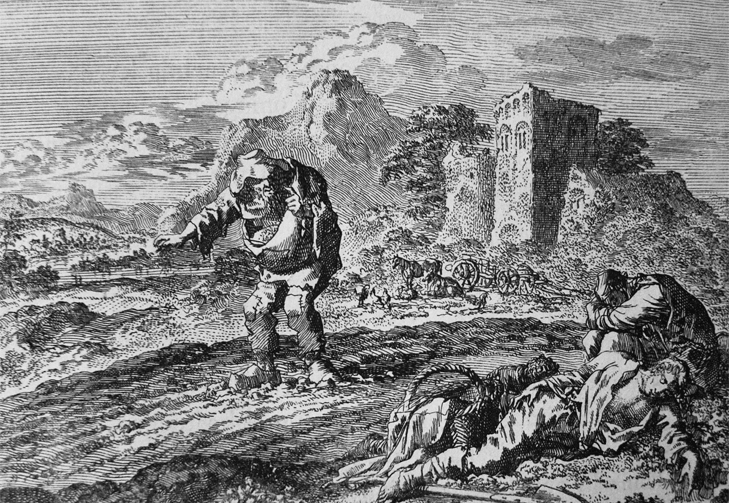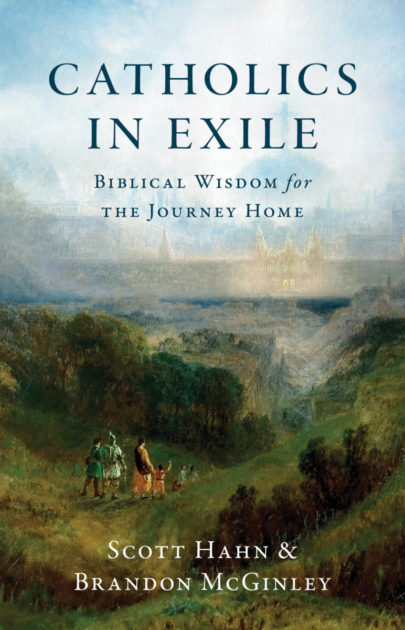What Lessons Can we Draw From the Parable of the Weeds?
By Clement Harrold

Matthew 13:24-43 relates the famous parable of the weeds (or tares, as they used to be known). The scene falls within what is known as the parabolic discourse in chapter 13 of Matthew’s Gospel, which involves no less than eight different parables. One of the things that makes the parable of the weeds interesting, however, is that Jesus goes out of His way not just to deliver it (vv. 24-30) but also to explain it (vv. 36-43).
The parable itself is very simple. A man sows good seed in his field, but while he is sleeping his enemy comes along and sows weeds among the wheat. In due course, when the plants begin to bear grain, the servants of the sower come to him to explain that weeds have begun to appear. The owner then realizes that an enemy has been at work.
Instead of directing his servants to immediately remove the weeds, the sower instead cautions them to take a more patient approach. Uprooting the weeds at this stage would risk doing damage to the good wheat; better, then, to let both weeds and wheat grow alongside one another until harvest time. On that day, the reapers in the fields will more easily be able to gather the wheat into the barn, while the weeds will be bundled together and tossed into the fire.
Needless to say, this is a parable which speaks to the agricultural realities of Jesus’s day, and darnel was known for being a particularly pernicious type of weed. In its early stages, it resembled wheat, but over time its weedy character became more and more evident. Given the danger it posed to farmers, the Romans even passed laws explicitly forbidding the sabotaging of another man’s field by sowing darnel among their wheat.
The one thing darnel could be used for was as a source of fuel. In the parable, therefore, the owner of the field waits until the wheat and the weeds have fully matured, at which point the two are clearly distinguishable and the darnel can be bundled up and burned.
When it comes to unpacking what the elements in the parable signify, Jesus has already done the hard work for us. The story, He says, is about the kingdom of heaven. The sower of the good seed is Himself, while the sower of the bad seed is the devil. The field is the world, and the good seed represents the sons of the kingdom, while the bad seed represents the sons of the evil one.
Finally, the harvest signifies the end of the age, and the reapers are the angels who will assist the Son of Man in gathering together all the sinful, evil weeds and tossing them into the fiery furnace, where there will be weeping and gnashing of teeth. Jesus concludes with an exhortation: “He who has ears, let him hear” (Mt 13:43).
What spiritual lessons might we draw from the parable? For one thing, the story of the wheat and the weeds is a poignant reminder that the spiritual battle is a real one, raging all around us. This is a major theme in Matthew’s Gospel: not just the coming of the Kingdom of God but also—crucially—our response to it. As the parable attests, there is another kingdom also at work in the world, a kingdom of darkness which will do everything in its power to drag us down to hell.
The intermixing of the wheat and the weeds also teaches us that in this life the seeds of corruption can be found everywhere. St. Augustine, for example, noted that the weeds extend not only to the Catholic laity, but to the priests and bishops as well. Even more pertinently, however, the parable teaches us to strive to recognize the weeds in our own hearts. As the Russian writer Aleksandr Solzhenitsyn famously observed, “The line separating good and evil passes not through states, nor between classes, nor between political parties either, but right through every human heart, and through all human hearts.”
If we wish to take Christ’s words seriously, then we must avoid at all costs a reckless confidence which says I know I’m among the wheat because I attend Mass regularly, or because I have a good prayer life, or because I’m “a good person.” While we don’t want to live in a state of perpetual anxiety, the parable of the weeds makes it clear that we also can’t live in a state of complacency. A balanced approach means rejoicing in Christ’s offer of salvation, while at the same time continually purging the weeds of sin which we have allowed to take root in our hearts.
Lastly, there is something beautiful in the way that Jesus explains the parable to His disciples. Notice that He begins by withdrawing from the crowd and entering into a house where He can be alone with His friends (see Mt 13:36). It is in this place of peace and quiet that the disciples are able to interact with God face-to-face, and listen attentively to His Word.
In the hushed stillness of the house, away from the noisiness of the crowd, the disciples become true little ones with eyes to see and ears to hear. We should let this experience be a reminder to us of the necessity of personal encounter with Jesus, above all through prayer and the Holy Eucharist. By this intimate encounter we will learn to better internalize His Word, and to grow as faithful sons and daughters within His Kingdom.
Clement Harrold earned his master’s degree in theology from the University of Notre Dame in 2024, and his bachelor’s from Franciscan University of Steubenville in 2021. His writings have appeared in First Things, Church Life Journal, Crisis Magazine, and the Washington Examiner.
You Might Also Like
From the day the Gospel dawned in the World, Christians have occupied a remarkable place—citizens of heaven, but heirs to the world; loving the world, yet persecuted by the world. A second-century author remarked that Christians are to the world what the soul is to the body. It was people of faith who transformed Greco-Roman civilization and empowered it to thrive.
This is the way of believers in every age, “always carrying in the body the death of Jesus, so that the life of Jesus may also be manifested” (2 Cor 4:10).
In this book, Catholics in Exile: Biblical Wisdom for the Journey Home, authors Scott Hahn and Brandon McGinley demonstrate that the same power that converted the world in the first century is still converting the world today. Providence is not like a sporting event, or the stock market, or the battlefield, where progress can be measured. But it is more reliable than any measurement we have.
